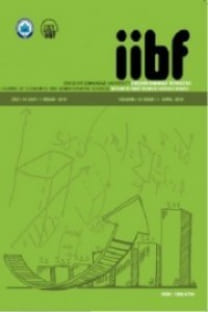Avrupa Birliğinin Beşinci Genişlemesi: Ana Temalar ve Faktörler
Bu çalışmada, AB’nin beşinci genişlemesi üzerine yoğunlaşarak temel dinamikler, önem verilen konular, boyutlar ve faktörler; eski üyeler ve adaylar açısından genişlemenin beklenen en önemli etkileri, genel hatlarıyla incelenmeye çalışılmaktadır. Mevcut üyeler için, genişleme, daha büyük bir pazar, yatırım fırsatları ve istihdam anlamına geliyordu. Genişleme, dönüşümün esas yükünün adaylara bırakıldığı sancılı ve aşağılayıcı bir süreç olarak gizli tehditler içeriyordu. Adaptasyon sürecini başaramayanlar ‘Avrupalı değil’ diye tanımlanabilecekti. Genişlemenin teorik ve tarihsel arkaplanı, genişlemenin belirgin özellikleri; tarihsel ve duygusal boyutlar kısaca açıklanmıştır. Beşinci genişlemenin arz ve talep yönüne bakılmış, AB’nin temel amaçları konusunda kesin bir fikrinin oluşmamış olmasının olumsuz etkileri irdelenmiştir. Beşinci genişleme sürecinde eski üyeler genişleme taraftarı olanlar ve gönülsüzler olarak ikiye ayrılmışlardır. Genişlemenin mekanizması sıkı ve katı bir şekilde şarta bağlılık ilkesine dayanmıştır. Mevcut üyelerce, genişlemeye “hayır” demenin maliyeti de değerlendirilmiştir.
Anahtar Kelimeler:
Avrupa birliği, AB’nin beşinci genişlemesi, şarta bağlılık
The Fifth Enlargement of the European Union: Major Themes and Factors
While focusing on the fifth enlargement, this study tries to analyze the main dynamics, important issues, dimensions and factors in the process; the most important effects, expected by the current members and candidates, from the enlargement process are also analyzed. For the current members, the enlargement meant access to a larger market, investment opportunities andemployment. The Enlargement, as a painful and humiliating process wherein the burden of transformation left to the candidates, contained implied threats. Those who did not accomplishthe compliance faced with the possibility of being labeled as ‘non‐Europe’. The theoretical and historical background of the enlargement, the dominant characteristics and historical and emotional factors are explained in brief. The supply and demand side of the enlargement and the negative effects of EU’s not having a clear perspective about its objective are analyzed. In the fifth enlargement process the members were initially divided as drivers and brakemen. The mechanism of the enlargement was fairly strictly based on conditionality. The members also evaluated the possible repercussions of saying “no” to the enlargement.
Keywords:
European union, the fifth enlargement of the eu, conditionality. ,
- ISSN: 1306-6730
- Yayın Aralığı: Yılda 3 Sayı
- Başlangıç: 2006
- Yayıncı: Eskişehir Osmangazi Üniversitesi İktisadi ve İdari Bilimler Fakültesi
Sayıdaki Diğer Makaleler
Maliyet Etkinlik Analizi: Türkiye’deki Büyükşe‐ hir Belediyelerinde Uygulama
Zeliha kaygisiz, Nuray girginer
Piyasa, Kapitalizm ve Kalkınma: Braudel’in Işığında Kalkınma Teorisi
Nilgün SARIKAYA, Remzi ALTUNIŞIK
Market, Capitalism and Development:Development Theory in the Light of Braudel
İMKB’ye Kayıtlı İmalat Şirketlerinde Çalışma Sermayesi Politikaları ve Firma Performansı İlişkileri
Türkiye’de İhracatın İthalata Bağımlılığı: Otomotiv Sektörü
İletişimci Biçimleri Ölçeğinin Türkçeye Çevirisi, Uyarlanması, Geçerlik ve Güvenirliğinin Sağlanması
Özcan özgür dursun, Cengiz hakan aydin
Nilgün sarikaya, Remzi altunişik
